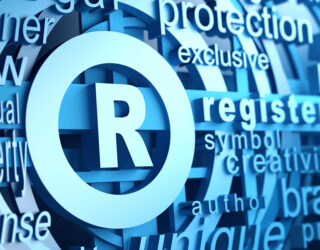
This week marks the sixth anniversary of the Sustainable Development Goals (SDG), a call to action to end poverty, protect the planet, and ensure that by 2030 all people enjoy peace and prosperity. For any companies that have not yet started working toward these goals…now is the time! Not only will it help build a better society, but it also has a great impact on your corporate reputation. In this article, we look at the main points for bringing your company up to speed and cite some companies that built ESG into their DNA from the outset.
The global SDGs aim to have a positive impact on the world and encourage everyone in it, including governments, the private sector, civil society and each and every individual, to take action to leave a better planet for future generations.
But more than just doing something good for humankind, companies are finding the SDGs to be increasingly important for bolstering their reputations and enhancing their stakeholder relationships. In today’s world, both investors and consumers are looking for companies that are committed to the environment, equity and sustainability.
These days, in order to have a good reputation, companies must do more than just sell quality products or services. Consumers are better informed and more demanding, and they want to know exactly where their money is going – and preferably to companies that share their same ethical and environmental values.
Against this backdrop, in an increasingly green society that is ever more committed to social issues, companies must comply with the environmental, social and governance (ESG) criteria that help measure their impact on society.
There is no doubt that those companies that embrace ESG criteria have bolstered their corporate reputations. It is increasingly important for companies to demonstrate their commitment to society: if all a company wants to do is make money, in a few years its customers and stakeholders are likely to abandon it for its competitors. These commitments are not just empty idealism, but a reality that is here to stay. Consumers demand that while making money, companies must live out their commitment to society and actively support its development and growth.
What are ESG criteria?
- Environmental: This criteria analyzes how companies carry out activities that positively impact the environment, such as reducing CO2 emissions, efficiently managing waste and water, and installing efficient heating, cooling and lighting systems and energy-saving printers, among other measures.
- Social: The social criteria comes down to analyzing a company’s relationship with its employees and verifying, for example, gender equality and equal opportunities, work/life balance, positive working environment, talent retention, cybersecurity and data protection for clients and suppliers.
- Corporate governance: This refers to how a company is managed and administered. Corporate governance focuses on how a company conducts itself when managing its internal controls and risks and how it applies its transparency policies.
Traditionally, compliance with ESG criteria was thought to be something only large companies had to do. In fact, this is what the law says, since the Transitional Provision of Law 11/2018, of December 28, 2018, amending the Commercial Code, the revised Capital Companies Law approved by Legislative Royal Decree 1/2010, of July 2, 2010, and Audit Law 22/2015, of July 20, 2015, as regards non-financial information and diversity, which entered into force on December 30, 2018, establishes that only companies with more than 250 workers are required to file non-financial information statements. However, the reality is that even though the majority of companies are not yet legally required to do so, each and every company should implement ESG criteria if it wants to keep its brand reputation strong and associated with the values of sustainability and good governance. Doing so only benefits a company and its brand image.
ESG in companies’ DNA
In fact, today we are seeing more and more companies that incorporate ESG criteria in their DNA from day one. Several examples of this exist in the fashion world, including firms like María Malo, which recently dressed Queen Letizia of Spain with a dress made from organic bamboo. This clothing brand, founded by the designer María Malo, who holds a degree in Environmental Sciences, embraces the values of respect for nature and every person involved in the process. Other examples include the jeans brand Bluyins, which makes clothing out of recycled fabrics, and the newly launched clothing brand MOTI, founded by three friends and former co-workers, in order to salvage fabrics from orders canceled by other brands due to the Covid pandemic and put them to good use, thereby reducing the impact of the waste overwhelming our planet.
Yet all is not lost for those companies that did not incorporate ESG criteria from their very start, as they still have time to adapt to the new market demands, to set reasonable goals related with improving the environment and society and to accompany these goals with a persuasive story that helps boost their corporate reputations. We must not forget that today’s consumers are more demanding, that they ask themselves how their purchasing habits will affect the planet, that, thanks to social media, they are aware of a lot more brands, and that they will surely only take interest in those that share their same values.
Companies must therefore take care with what they do and what they say, given that this shapes a large part of their reputation, and avoid missing the sustainability train, since if taken too late, they might never reach their goal.
The acronyms ESG and SDG are here to stay, as a reminder that every single one of us, as individuals and as members of a larger community, can serve those around us, can help improve the environment and can support those less fortunate. This, far from being a zero-return investment or effort, will actually help us grow both economically and as human beings.
Garrigues Intellectual Property Department






